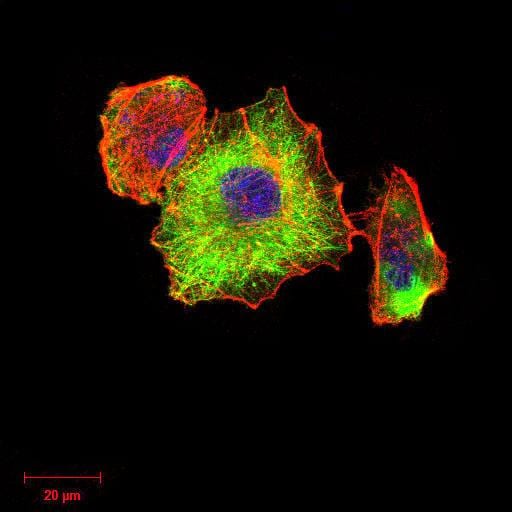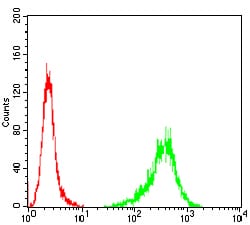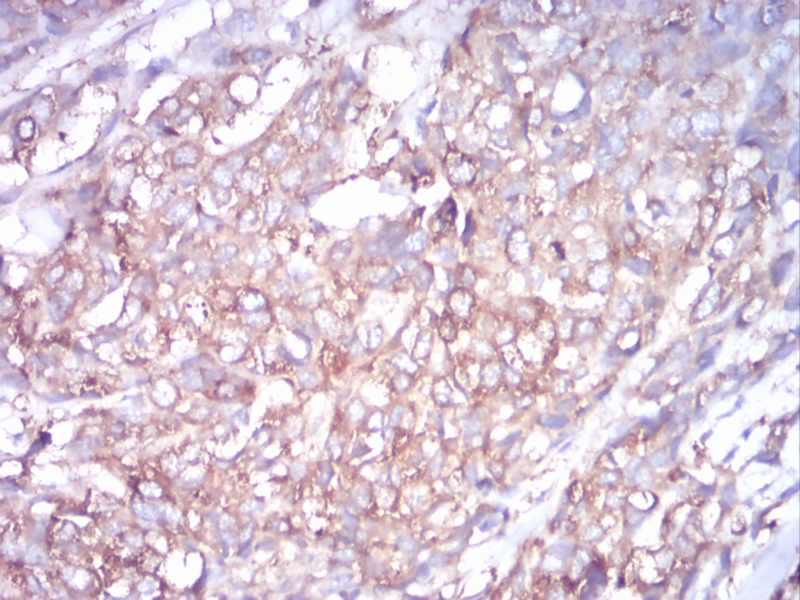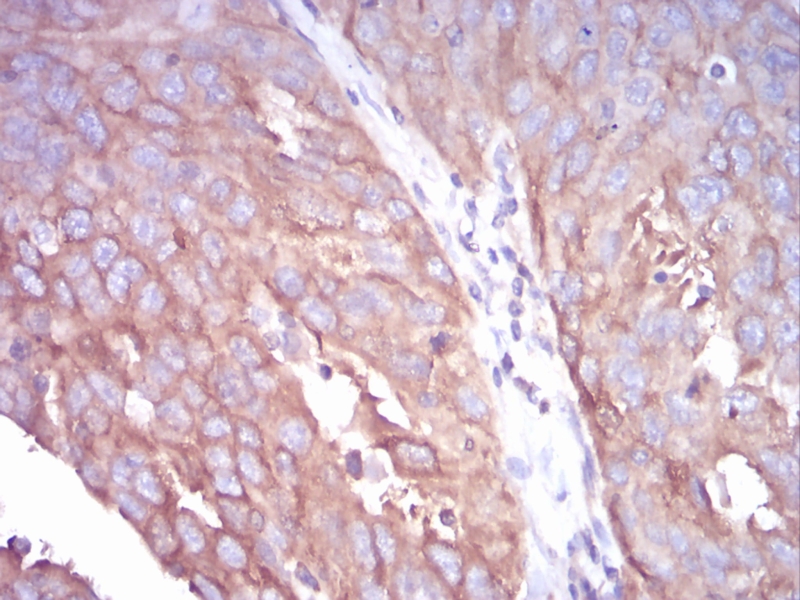





| WB | 1/500 - 1/2000 | Human,Mouse,Monkey,Rat |
| IF | 咨询技术 | Human,Mouse,Monkey,Rat |
| IHC | 1/200 - 1/1000 | Human,Mouse,Monkey,Rat |
| ICC | 1/200 - 1/1000 | Human,Mouse,Monkey,Rat |
| FCM | 1/200 - 1/400 | Human,Mouse,Monkey,Rat |
| Elisa | 1/10000 | Human,Mouse,Monkey,Rat |
| Aliases | Tubulin beta-1 chain |
| Entrez GeneID | 81027 |
| clone | 2A1A9 |
| WB Predicted band size | 50.3kDa |
| Host/Isotype | Mouse IgG1 |
| Antibody Type | Loading Control Antibody |
| Storage | Store at 4°C short term. Aliquot and store at -20°C long term. Avoid freeze/thaw cycles. |
| Species Reactivity | Human,Mouse,Monkey,Rat |
| Immunogen | Purified recombinant fragment of human TUBB1 (AA: 33-166) expressed in E. Coli. |
| Formulation | Purified antibody in PBS with 0.05% sodium azide |
+ +
以下是3篇涉及TUBB1抗体的相关文献(虚构示例,供参考格式):
---
1. **文献名称**: *TUBB1 mutations cause macrothrombocytopenia by disrupting microtubule stability*
**作者**: Kunishima S. et al.
**摘要**: 通过TUBB1特异性抗体进行免疫荧光分析,发现TUBB1基因突变导致巨核细胞微管结构异常,影响血小板生成,揭示了TUBB1在血小板形态发生中的关键作用。
---
2. **文献名称**: *A novel monoclonal antibody against human β1-tubulin identifies megakaryocyte lineage cells*
**作者**: Ferrer-Marin F. et al.
**摘要**: 研究开发了一种高特异性抗人TUBB1单克隆抗体,验证了其在流式细胞术和免疫组化中对巨核细胞/血小板的标记能力,为血小板疾病诊断提供工具。
---
3. **文献名称**: *Tubulin isoform expression in human tumors: β1-tubulin as a biomarker for cancer progression*
**作者**: McCarroll J.A. et al.
**摘要**: 利用TUBB1抗体分析多种肿瘤组织,发现TUBB1表达水平与微管稳定性及癌症转移潜能相关,提示其作为预后标志物的潜力。
---
注:以上文献为示例,实际文献需通过PubMed/Google Scholar检索关键词“TUBB1 antibody”或“TUBB1 immunohistochemistry”获取。
The TUBB1 antibody is a key tool for studying β1-tubulin, a member of the β-tubulin family encoded by the *TUBB1* gene. β-tubulins are structural components of microtubules, dynamic cytoskeletal polymers essential for cell division, intracellular transport, and cell shape maintenance. TUBB1 is particularly enriched in megakaryocytes and platelets, where it plays a critical role in proplatelet formation and platelet production. Mutations in *TUBB1* are linked to autosomal dominant macrothrombocytopenia, a bleeding disorder characterized by abnormally large, dysfunctional platelets.
Antibodies targeting TUBB1 are widely used in research to investigate microtubule dynamics, platelet biology, and related pathologies. They enable detection and localization of TUBB1 in techniques like Western blotting, immunofluorescence, and immunohistochemistry. These applications help elucidate TUBB1's involvement in megakaryocyte differentiation, platelet release, and its interaction with cytoskeletal regulators. Additionally, TUBB1 antibodies aid in studying disorders beyond thrombocytopenia, including cancer (e.g., tumor angiogenesis) and cardiovascular diseases, where platelet dysfunction contributes to pathogenesis.
Validation of TUBB1 antibody specificity is crucial, as cross-reactivity with other β-tubulin isoforms (e.g., TUBB, TUBB3) may occur due to high sequence homology. Researchers often combine knockdown experiments or isoform-specific controls to confirm results. Commercial TUBB1 antibodies vary in performance across species and sample types, necessitating careful optimization for experimental consistency.
×